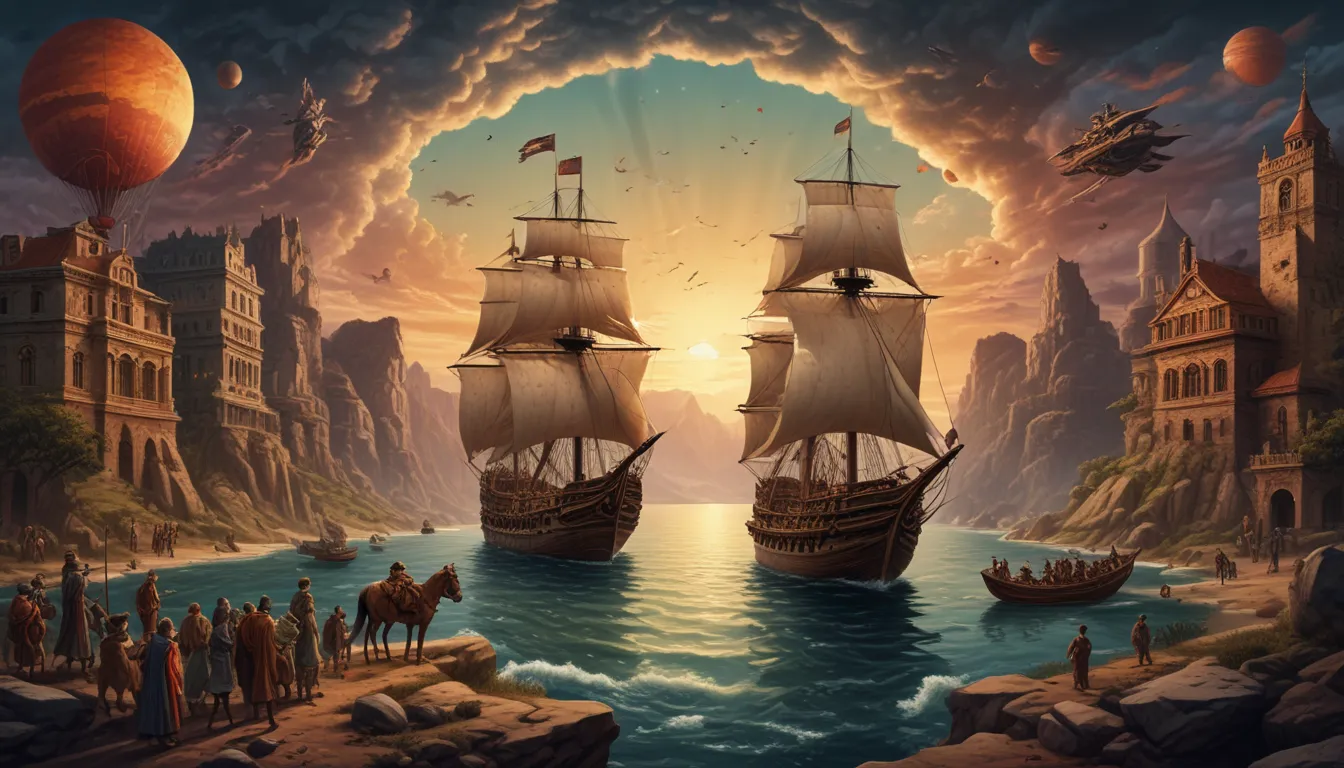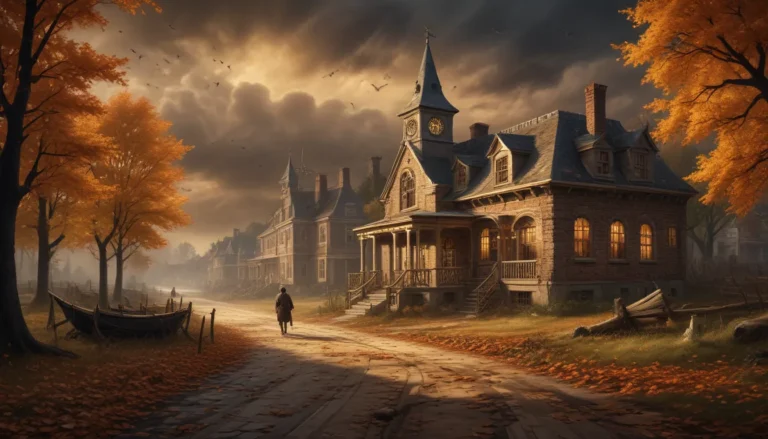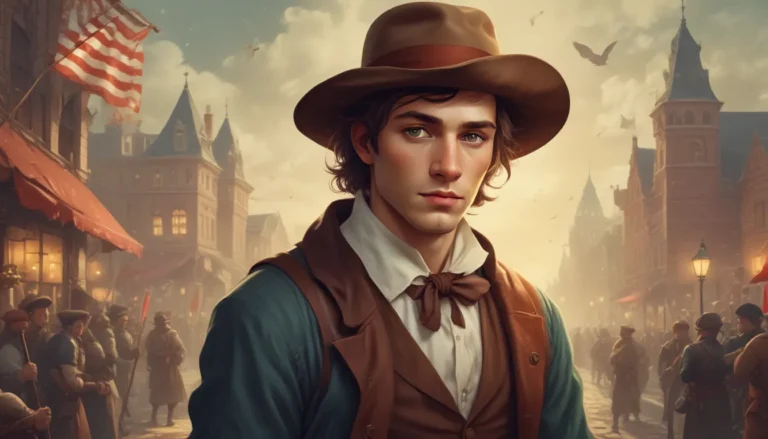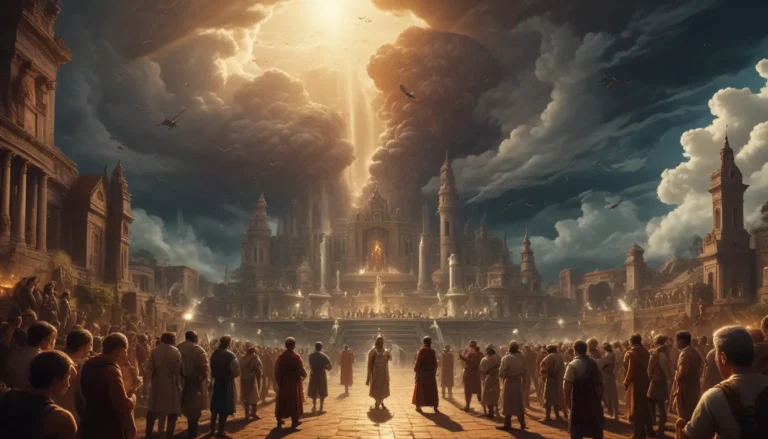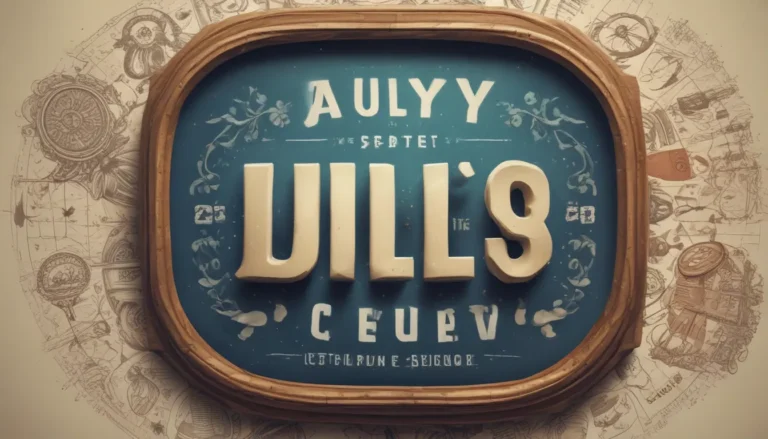The images in our articles may not match the content exactly. They are used to grab your attention, not to show the exact details in the text. The images complement the text but do not replace it.
Welcome to a captivating exploration of historical facts and events that have shaped the world we know today. On February 13th, significant moments, scientific breakthroughs, political milestones, cultural events, and notable births and deaths have left a lasting impact on society. Join us as we delve into the past to uncover fascinating facts, intriguing stories, and remarkable achievements that make February 13th a memorable date in the annals of history.
Key Takeaways
February 13th has seen pivotal historical events, scientific breakthroughs, and cultural milestones that continue to shape our world today. From the burning of Renaissance art to the birth of Adobe Photoshop, this day holds significant importance in history. Remembering historical events allows us to learn from the past, understand our heritage, and gain insights into the development of societies and cultures. Scientific breakthroughs and cultural events also play a crucial role in shaping our art, entertainment, and societal values.
Historical Events
The Bonfire of the Vanities (1497)
In Florence, Italy, the infamous Bonfire of the Vanities takes place, where numerous works of Renaissance art are burned, marking a dark moment in art history.
Galileo Galilei Under House Arrest (1633)
Italian astronomer Galileo Galilei arrives in Rome and is put under house arrest for advocating Copernican theory, challenging the beliefs of the time.
Allied Bombing of Dresden (1945)
During World War II, Dresden, Germany, is heavily bombed by Allied forces, resulting in severe destruction and loss of life, highlighting the devastating impacts of war.
Last “Peanuts” Comic Strip (2000)
The last original “Peanuts” comic strip by Charles M. Schulz is published, one day after his death, marking the end of an era for the beloved comic series.
Bomb Attacks in Balochistan (2014)
A series of coordinated bomb attacks in Pakistan’s Balochistan kills at least 83 people and injures more than 100 others, illustrating the ongoing challenges of conflict.
Scientific Breakthroughs
René Descartes and “Discourse on the Method” (1637)
French mathematician René Descartes publishes his philosophical treatise “Discourse on the Method,” introducing his famous line “I think, therefore I am,” revolutionizing philosophical thought.
Thomas Edison’s Electric Light Bulb (1879)
American inventor Thomas Edison demonstrates the first practical incandescent electric light bulb, paving the way for modern lighting technology.
League of Nations Establishment (1920)
The League of Nations is established in Paris, France, with the goal of promoting global cooperation and preventing future wars, laying the foundation for international diplomacy.
Alan Turing and the Turing Test (1950)
English computer scientist Alan Turing publishes his influential article “Computing Machinery and Intelligence,” introducing the concept of the Turing Test, a milestone in artificial intelligence.
Adobe Photoshop Release (1990)
The computer graphics software Adobe Photoshop is released, revolutionizing digital image editing and manipulation, transforming the world of design and photography.
Political Milestones
Formation of National League (1880)
The National Association of Professional Baseball Players disbands, leading to the formation of the more formalized National League, shaping the future of professional baseball.
Neutrality Act Passage (1935)
The U.S. Congress passes the Neutrality Act, prohibiting arms exports to belligerent nations or nations at war, reflecting efforts to maintain neutrality in global conflicts.
France’s First Nuclear Test (1960)
France conducts its first nuclear test, codenamed “Gerboise Bleue,” in the Sahara Desert, marking a significant step in nuclear weapons development.
Konstantin Chernenko’s Leadership (1984)
Konstantin Chernenko becomes the General Secretary of the Communist Party of the Soviet Union, succeeding Yuri Andropov during a period of political transition.
Kosovo Independence Declaration (2008)
Kosovo declares independence from Serbia, leading to international recognition and a period of political uncertainty in the region, shaping the geopolitics of the Balkans.
Cultural Events
Execution of Catherine Howard (1542)
Catherine Howard, the fifth wife of Henry VIII of England, is executed for adultery, reflecting the tumultuous history of royal marriages in England.
Publication of “The Great Gatsby” (1925)
American author F. Scott Fitzgerald publishes his iconic novel “The Great Gatsby,” a timeless classic that captures the spirit of the Jazz Age and American society.
Grammy Wins for The Beatles (1968)
The Beatles‘ album “Sgt. Pepper’s Lonely Hearts Club Band” wins four Grammy Awards, including Album of the Year, cementing their legacy in music history.
Longevity of The Simpsons (1997)
The Simpsons becomes the longest-running prime-time animated television series, surpassing The Flintstones’ record of 166 episodes, a testament to its enduring popularity.
Tragic End of Whitney Houston (2011)
American singer and actress Whitney Houston is found dead in a hotel bathtub, marking a tragic end to her career and life, leaving a profound impact on the music industry.
Births
George Psalmanazar (1633)
French imposter known for his fabricated tales of being a native of Formosa, highlighting the allure of storytelling and deception.
Georgios Papandreou (1888)
Greek lawyer and politician, 162nd Prime Minister of Greece, whose leadership shaped Greek politics during critical periods.
Kim Novak (1933)
American actress known for her roles in classic films, captivating audiences with her talent and charisma.
Peter Gabriel (1950)
English singer-songwriter and musician, a pioneering artist known for his innovative music and social activism.
Mena Suvari (1980)
American actress and fashion designer, whose versatile performances have made her a prominent figure in Hollywood.
Notable Deaths
Jesse Fell (1866)
American inventor and philanthropist known for inventing the first practical coal-burning heater grate, contributing to advancements in heating technology.
Sophie Scholl (1945)
German student and anti-Nazi activist, executed for distributing anti-war leaflets, symbolizing resistance against oppressive regimes.
Daniel J. Travanti (1994)
American actor known for his role in the TV series “Hill Street Blues,” whose talent and dedication left a lasting impact on television.
Whitney Houston (2012)
American singer, actress, and producer, whose powerful voice and artistry made her a global icon in the music industry.
David Carr (2015)
American journalist and author, known for his work as a media columnist for The New York Times, whose insightful commentary shaped media discourse.
Conclusion
February 13th has witnessed significant historical events, scientific breakthroughs, political milestones, cultural events, and notable births and deaths throughout history. From the burning of Renaissance art during the Bonfire of the Vanities to the establishment of the League of Nations, this day has played a pivotal role in shaping our world. Additionally, scientific advancements like the invention of the electric light bulb and the release of Adobe Photoshop have transformed our lives. The cultural impact of works such as “The Great Gatsby” and the lasting legacy of musicians like Whitney Houston further highlight the significance of this day. As we delve into the events that took place on February 13th, we gain a deeper understanding of the past and its impact on the present.
FAQs
Q: Are all the facts and events mentioned in this article accurate?
A: Yes, the facts and events mentioned in this article are based on historical records and reliable sources.
Q: Can I find more information about these events and individuals?
A: Absolutely! You can refer to history books, online encyclopedias, and reputable websites to explore these events in more detail.
Q: Why is it important to remember historical events?
A: Remembering historical events allows us to learn from the past, understand our heritage, and gain insights into the development of societies and cultures.
Q: How are scientific breakthroughs significant to our lives?
A: Scientific breakthroughs drive innovation and progress in various fields, leading to advancements in technology, medicine, and our overall quality of life.
Q: Why do cultural events hold importance?
A: Cultural events shape our art, entertainment, and societal values, reflecting the diversity and creativity of human expression.
Our commitment to delivering trustworthy and engaging content is at the heart of what we do. Each fact on our site is contributed by real users like you, bringing a wealth of diverse insights and information. To ensure the highest standards of accuracy and reliability, our dedicated editors meticulously review each submission. This process guarantees that the facts we share are not only fascinating but also credible. Trust in our commitment to quality and authenticity as you explore and learn with us.
